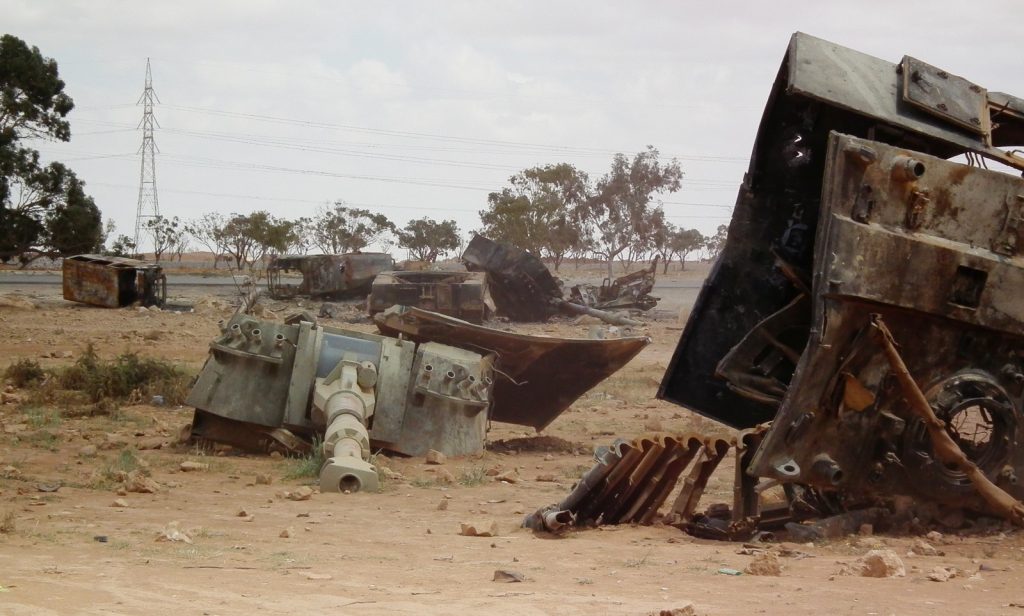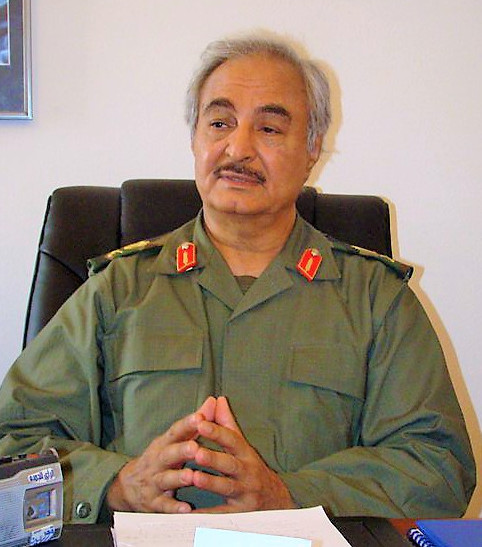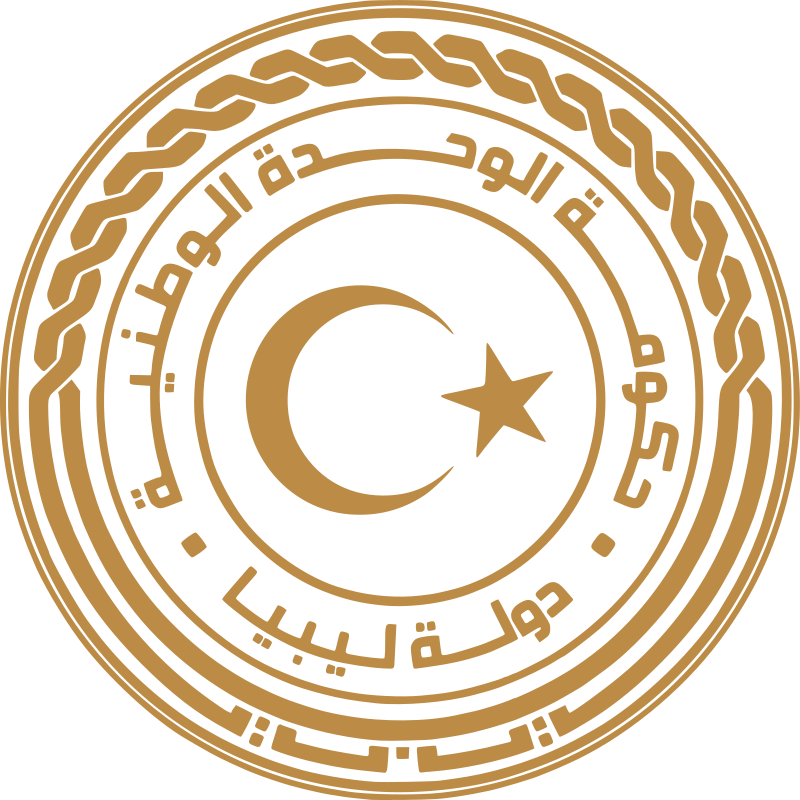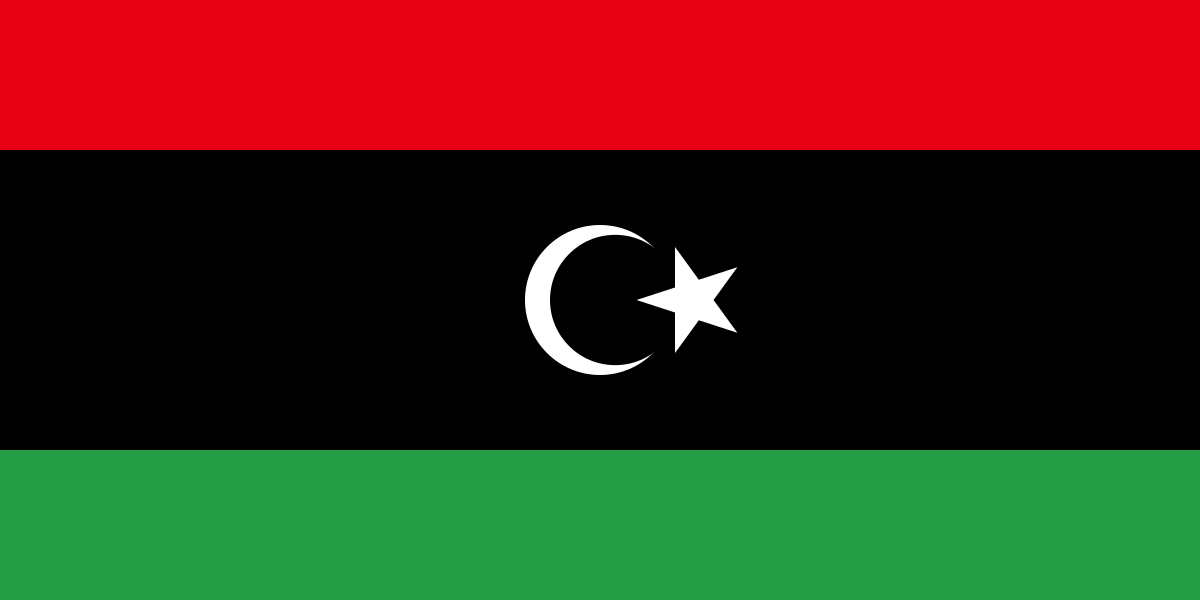Ever since Gaddafi was killed in 2011, the new Libyan state has been in a chaotic state. How could it not be? The revolution happened so fast that a really coherent government was difficult to accomplish. Now, ten years later and they’re having Libya elections, probably the most important event since the revolution itself! Why is that? And what’s the election all about?
Libya After the Revolution

When Gaddafi died in 2011, an interim government had been planned out, at least to some degree. The National Transitional Council served as the government for ten months until the first Libya elections could be held and already there were problems. Most notably being that the council was full of former members of Gaddafi’s government, making many fear that they were seeing less of a revolution and more of a change in management. In January of 2012, protesters stormed their headquarters demanding the Gaddafi-era figures be expelled. Many also demanded that Libya be governed by Islamic rule, suggesting the kinds of political divides that were to come.
What followed was the first set of Libya elections in 2012. Due to Libya’s previous banning of parties, many of those standing were still finding their footing and often made of coalitions that had yet to test their ability to act together. Despite all the difficulties and early protests, spirits were high. Voter turnout was 61% and the people broadly accepted the newly elected General National Congress, which was to aid in transition to a new Libyan parliament. The top voted party was broadly liberal, but coming second with 10% of the vote was essentially the Libyan branch of the Muslim Brotherhood, showing the growing appeal of fundamentalist Islam in Libya.
Speaking of, the revolution had brought a whole lot of armed groups out of the woodwork. With a steady supply of weapons from western governments, largely unaligned anti-Gaddafi militias armed themselves and when the war was over, simply… Didn’t disarm. Many of these militias were not particularly loyal to the new government and functioned as their own local governments. Many of these groups were also heavily influenced by radical Islamism, leading to an inevitable and infamous attack in Benghazi which killed the US ambassador and several others. The government was forced to respond in a harsh crackdown, which began turning more militants against the new government.
With many aspects of governance largely outside of the official government’s control and with a deteriorating security situation, Libyan popular opinion soured rapidly towards the new regime. It was felt that the new government was corrupt and useless. What’s more, the GNC’s electoral mandate was set to expire on the 7th of February 2014, which was instead delayed until the 24th of December which led to mass protests. When the Libya election for the new House of Representatives was held in June, voter participation had dropped to a mere 18% and when Islamists only won 30 of the 200 seats, they declared the elections invalid and the GNC the sole authority in Libya.
The Second Civil War

In conditions like that, of course there was going to be a civil war. The Libya elections meant nothing and it seemed the country was sliding back into dictatorship. In response to the GNC refusing to dissolve, the head of the Libyan army, Khalifa Haftar, announced the GNC’s dissolution for them. While he evidently didn’t have the authority, he attempted to enforce it through his ‘Operation Dignity’ in May of 2014, militarily trying to remove local Islamist groups from Benghazi. Later in July, Islamists began ‘Operation Libya Dawn’ and seized Tripoli airport. The GNC made Tripoli their base of operations while the House of Representatives moved to establish a government in Tobruk, taking Haftar on as their new army chief.
General lawlessness and loosely aligned militant groups remained the norm in Libya, now even more eager to shoot at each-other. In 2015, the city of Sirte was overtaken by ISIS to add yet another front to the rapidly spiralling war. There were no more Libya elections, just a struggle for control. The UN attempted to form a compromise with the formation of the Government of National Accord (GNA) to serve as a power-sharing government. Under this idea, the House of Representatives would be joined by an advisory body elected by the GNC. And they agreed! The new government arrived in Tripoli on March of 2016 and it looked like the war would soon be over.
And then in the summer, the rival government in Tobruk voted against the new government. Damn. Soon they dropped recognition entirely and the war resumed. Haftar began taking a more dominant position, essentially leading the war effort of the House of Representatives faction and asserting his own independence, with many questioning whether his true goal was to become president himself. The years dragged on and tentative plans for new Libya elections were suggested in 2018, only to be delayed. At last in August of 2020, it was agreed for Libya elections for parliament and presidency to be held on the 24th December 2021. In October, a permanent ceasefire ended the war.
A provisional government was established on the 10th of March 2021 known as the Government of National Unity, which aims to oversee the new Libya elections and unite the factions in the GNA and House of Representatives. So these are the stakes. Two deeply divided governments with a mix of secularists and Islamists, as well as a powerful military warlord who may well be more loyal to himself than anyone else. Quite a difficult situation.
The 2023 Libya Elections

At the time of writing, the Libya elections are… Incredibly uncertain. On the 21st of September, yesterday for me, the Tobruk government passed a vote of no confidence against the new administration, sending yet more ripples of uncertainty through the peace process. There are calls for yet more delays on the vote and the exact form of the new parliament is still completely up in the air. It may happen or it may not happen, possibly resuming the bloody war and leading to thousands more meaningless deaths.
Another aspect of the Libya elections is the presidential election, a very important thing since Libya has lacked any true unifying leader since Gaddafi. Numerous parties have raised their interest, but with little possible polling and such a long time between elections, it’s hard to gauge the popularity of those putting their names forward. Aref Ali Nayed expressed interest in 2018, representing a liberal-democratic platform of security, government transparency and economic decentralisation. Khalifa Haftar has not ruled out his own participation… And especially interesting, Saif al-Islam Gaddafi, son of Muammar Gaddafi, has pushed to participate. Given the chaos of recent years, his platform may have more legitimacy now than ever.
So that’s the upcoming Libya elections. It’s hard to say how they’ll go or if they’ll even happen at all, but for the time being at least, they’re giving hope to a lot of Libyans who have faced ten years of failure and chaos.
You can check out our Libya Tours here






